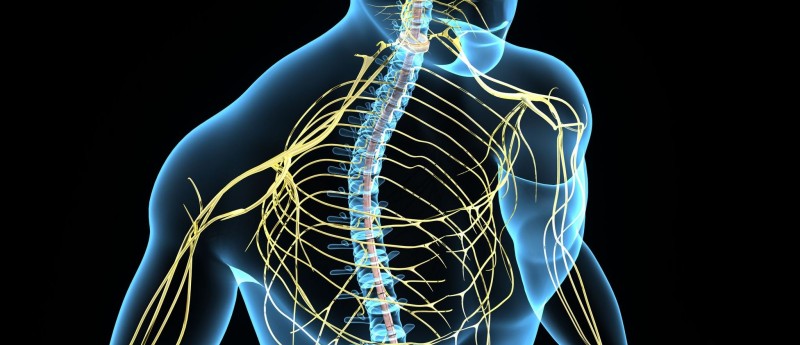What is a Stinger Injury in the Spine?
Category: Spinal Cord Injury | Author: Stefano Sinicropi

Stinger injuries – not the ones caused by bees or wasps – are categorized by nerve damage to the neck or shoulder. You may have heard the term in other forms, as the injury is sometimes classified as a burner or a nerve pinch injury. Regardless of how it’s termed, stinger injuries can cause big problems with the nerves in your neck, shoulder, arms and fingers, and symptoms should not be ignored. Today we take a closer look at stinger injuries and treatments.
Stinger Causes and Symptoms
By far, the most common cause of a stinger injury is contact to the neck or shoulder during athletic activity. Athletes suffer the most stingers playing football, but they can occur during any sport where contact occurs. Linebackers, defensive backs, running backs and wrestlers are most at risk for a stinger.
A stinger can occur in one of two ways:
- The nerves in the neck near the spinal cord become compressed as the head is forced backwards and sideways; or
- The nerves in the neck and shoulder are overstretched as the head is forced away from that shoulder.
Any athlete who suffers a stinger will become aware of the problem right away, as stingers are accompanied by sudden and severe pain in the neck and shoulder, stinging sensations in your arm on the injured side of your body and muscle weakness in your arm and shoulder. Pain can last for a few minutes or for hours.
Stinger Treatment
Treating a stinger during athletic activity is very similar to normal concussion protocol. The first thing that coaches or medical staff should do if an athlete complains of the above symptoms is to remove the athlete from the game until an examination can be completed. First time stingers generally resolve within a few minutes or an hour, but there’s a greater risk of recurrent or worsened symptoms if the injury is left unaddressed.
After the game, if symptoms are still present, consider setting up an appointment with a licensed back specialist. A doctor can take a closer look at the injury and ensure the nerve damage isn’t severe, and they can help suggest some rehab exercises to help strengthen the muscles in the area if the patient is dealing with bouts of muscle weakness. They also may recommend special shoulder pads or a neck collar to help protect the area during athletic activity.
Oftentimes rest and a break from contact sports are the best way to treat a stinger, but listen to your doctor’s specific instructions.